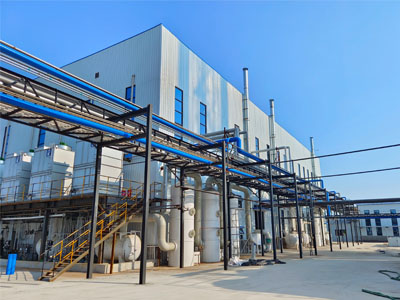water flocculant
Understanding Water Flocculants Their Importance and Applications
Water flocculants play a crucial role in various industrial and environmental processes. These substances are used to aggregate fine particles in water, forming larger clusters or flocs that can then be easily removed from the water. This process is vital for water treatment, waste management, and a range of other applications.
What are Flocculants?
Flocculants are chemical agents that facilitate the clumping together of suspended particles in a liquid, making it easier to separate them from the liquid phase. They can be either organic or inorganic substances, with organic flocculants often derived from natural sources such as starches or synthetic polymers. The choice of flocculant depends on the specific characteristics of the water being treated and the nature of the contaminants.
Importance of Flocculants in Water Treatment
The primary application of water flocculants is in water treatment facilities where the quality of drinking water must be ensured. When raw water is collected, it often contains a variety of impurities, including sediments, organic matter, and microorganisms. Flocculation helps in purifying this water by binding these impurities into larger aggregates that can be removed through sedimentation or filtration.
Moreover, flocculants are integral to municipal wastewater treatment. They assist in the removal of solid waste and contaminants before the treated water is released back into the environment or reused. By improving the efficiency of sedimentation processes, flocculants reduce the burden on filtration systems and lower operational costs.
water flocculant

Applications Beyond Water Treatment
In addition to water treatment, flocculants are utilized in various industries, including mining, paper manufacturing, and oil recovery. In mining, flocculants help in the extraction of valuable minerals from ore by settling unwanted materials. In the paper industry, they are used to improve the quality and yield of the final product by removing undesired fibers and fillers. Oil recovery processes also benefit from flocculants, as they assist in separating oil from water-based mixes.
Environmental Considerations
While flocculants are essential for efficient water treatment and industrial processes, their environmental impact must be considered. Some synthetic flocculants can be harmful to aquatic ecosystems if not properly managed. Therefore, research is ongoing to develop more environmentally friendly alternatives that maintain efficacy without adverse effects on the environment.
Conclusion
Water flocculants are indispensable tools in both water treatment and various industrial applications. They enhance the efficiency of particle removal, thus ensuring cleaner water for consumption and reducing environmental pollution. As technologies evolve, there is a growing focus on developing sustainable and eco-friendly flocculant options. By understanding and utilizing these substances effectively, we can improve water quality and promote a cleaner, healthier environment for future generations.
-
Pbtc Scale InhibitorPBTC: A Scale Protector for Industrial Water TreatmentNewsAug.05,2025
-
Organic Phosphonate: An Efficient Defender in the Field of Scale InhibitionNewsAug.05,2025
-
Hydrolyzed Polymaleic Anhydride: Green Pioneer in Scale Inhibition FieldNewsAug.05,2025
-
PAPEMP Polyamino Polyether Methylene Phosphonic Acid For SaleNewsAug.05,2025
-
Flocculant Water Treatment: A Pioneer in Purification in the Field of Water TreatmentNewsAug.05,2025
-
Benzyl Isothiazolinone: An Efficient and Broad-Spectrum Antibacterial Protective GuardNewsAug.05,2025





